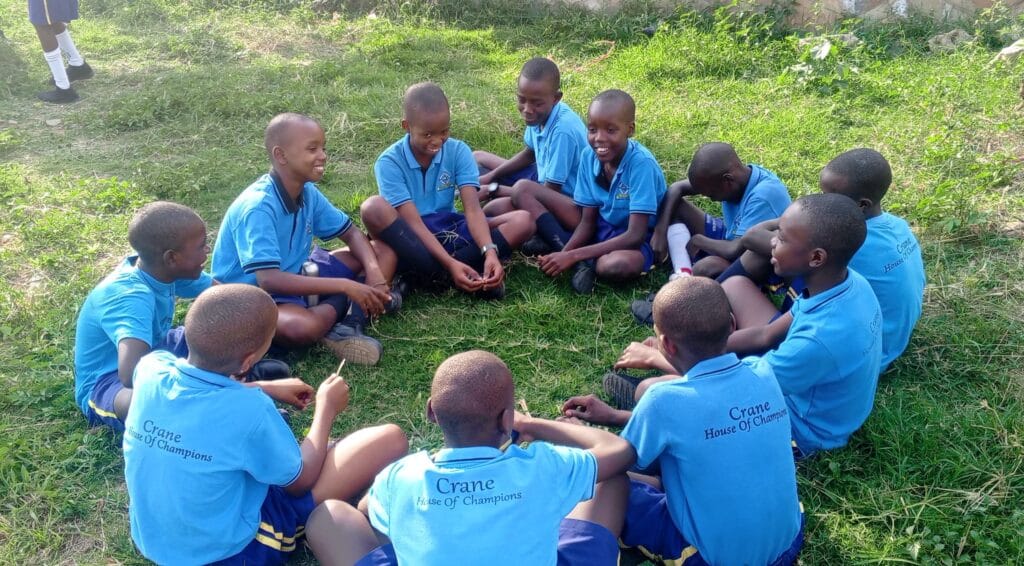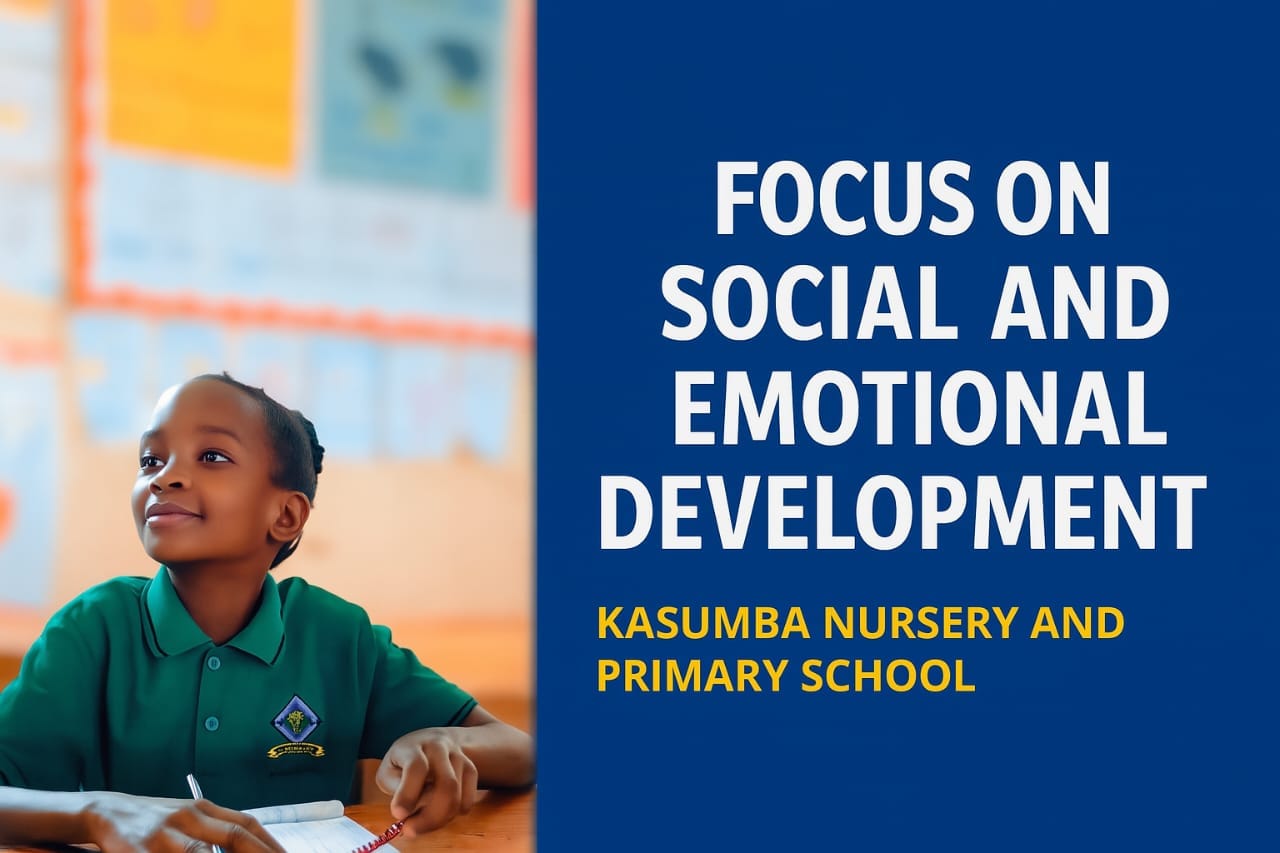In today’s fast-paced world, academic excellence is often the primary focus of education. However, at Kasumba nursery and primary school, we believe that a truly comprehensive education goes far beyond textbooks and test scores. It’s about nurturing the whole child, their mind, body, and heart. That is why Kasumba Nursery and Primary School supports social and emotional development as a foundational pillar of our educational philosophy. We understand that skills like empathy, resilience, and self-awareness are not just beneficial; they are essential for a child’s lifelong success and well-being.
Choosing the right school in Uganda for your child is a monumental decision. You want an environment where they feel safe, understood, and empowered to grow. This article will explore the seven key ways we intentionally create such an environment, ensuring that every child who walks through our gates develops the social and emotional intelligence needed to thrive.

Table of Contents
The Critical Role of Social and Emotional Learning (SEL)
Before we dive into our specific methods, it’s important to understand what we mean by social and emotional learning (SEL). According to the renowned Collaborative for Academic, Social, and Emotional Learning (CASEL), SEL is the process through which children and adults acquire and apply the knowledge, skills, and attitudes to develop healthy identities, manage emotions, achieve goals, feel and show empathy for others, establish and maintain supportive relationships, and make responsible decisions.
Ultimately, these skills are the bedrock of good citizenship, strong friendships, and future career success. A child equipped with strong SEL skills is better prepared to handle challenges, collaborate effectively, and lead a fulfilling life.
How Kasumba Nursery and Primary School Supports Social and Emotional Development
At Kasumba, we don’t just teach SEL; we live it. It is woven into the fabric of our school culture. Here are seven distinct ways we make this happen.
1. Fostering a Positive and Safe School Climate
A child’s ability to learn and grow socially starts with feeling safe. We cultivate a nurturing atmosphere where every student feels a sense of belonging. This is achieved through:
- Zero-Tolerance for Bullying: We have clear and consistently enforced anti-bullying policies.
- Emphasis on Respect: Teachers model and explicitly teach kindness, respect, and inclusivity in all interactions.
- Open Expression: We create “safe spaces” in the classroom where children are encouraged to share their feelings and perspectives without fear of judgment.
2. Integrating SEL into Our Core Curriculum
Social and emotional development isn’t an afterthought or a separate 30-minute lesson. We intentionally integrate SEL concepts into our daily academic subjects. For instance:
- In literature, students discuss a character’s motivations, challenges, and feelings, building empathy.
- During history lessons, we explore different perspectives and the consequences of decisions made by historical figures.
- Science projects often require teamwork, teaching valuable lessons in communication and collaboration.
3. Encouraging Collaborative Learning and Teamwork
From the playground to the classroom, collaboration is key. We structure many activities to require teamwork. Through group projects, school sports, and various clubs, students learn vital skills such as:
- Negotiation and compromise
- Effective communication
- Conflict resolution
- Shared responsibility and leadership
These experiences teach them that collective success is often more rewarding than individual achievement.
4. Promoting Mindfulness and Self-Regulation
The ability to manage one’s own emotions and actions is a superpower. We introduce age-appropriate mindfulness practices to help students develop this skill. Simple techniques like guided deep breathing before an exam, moments of quiet reflection, or “brain breaks” help children learn to:
- Manage stress and anxiety
- Improve their focus and attention
- Control impulsive reactions
This practice of self-regulation is a tool they will use for the rest of their lives.
5. Building Strong Teacher-Student Relationships
Our teachers are more than just instructors; they are mentors, guides, and role models. We maintain a favorable student-to-teacher ratio that allows our educators to build genuine, supportive relationships with each child. They take the time to understand each student’s unique personality, strengths, and challenges. This personalized attention ensures that every child feels seen, heard, and valued. The dedication of our staff is a clear sign that Kasumba Nursery and Primary School supports social and emotional development in every classroom.
6. Engaging in Community and Service Learning
We believe in raising responsible citizens who understand their role in the wider community. We organize service-learning projects, such as local clean-up drives or fundraising for a local charity. These activities help students develop a profound sense of empathy, compassion, and civic responsibility, connecting their learning to the real world right here in Kampala.
7. Involving Parents as Essential Partners
A child’s development is a collaborative effort between home and school. We actively involve parents through regular communication, parent-teacher conferences, and workshops on topics related to child development. By working together, we can create a consistent environment that reinforces the social and emotional skills your child is learning at school. We encourage you to reach out to us through our contact page at any time.
Frequently Asked Questions (FAQ)
What is Social and Emotional Learning (SEL)? Social and Emotional Learning (SEL) is the process of developing the self-awareness, self-control, and interpersonal skills that are vital for success in school, work, and life. It includes managing emotions, setting goals, feeling empathy, and maintaining positive relationships.
How do you handle conflicts between students? We use a restorative approach to conflict resolution. Instead of simply punishing, we guide students to talk through their disagreements, understand each other’s perspectives, and work together to find a solution. This teaches them accountability and how to repair relationships.
My child is very shy. How will Kasumba help them? Our teachers are trained to support children of all temperaments. For shy children, we provide gentle encouragement and create low-pressure opportunities for them to participate. Small group activities, one-on-one encouragement, and celebrating their unique contributions help build their confidence at their own pace.
Conclusion:
Nurturing the Leaders of Tomorrow
Choosing a primary school is an investment in your child’s future. At Kasumba Nursery and Primary School, we are committed to providing an education that prepares children not only for their next academic step but for life itself. By embedding social and emotional learning into everything we do, we help shape resilient, compassionate, and well-rounded individuals who are ready to positively impact the world.
Ready to See the Difference?
Experience our nurturing environment firsthand. We invite you to learn more about our holistic approach and how we can support your child’s complete development.




